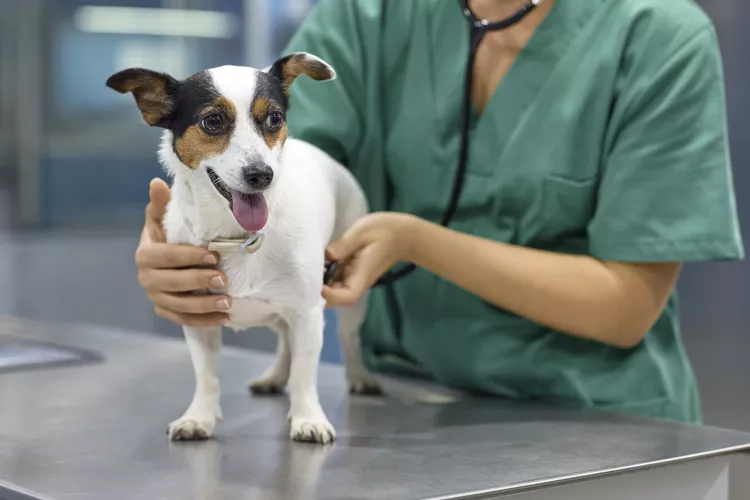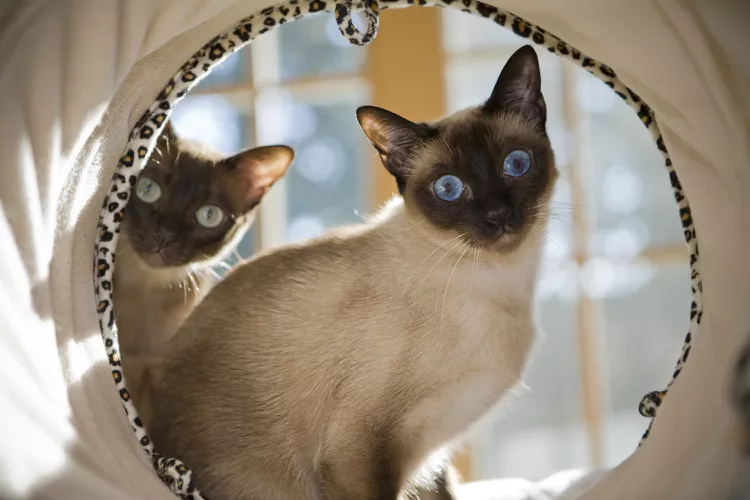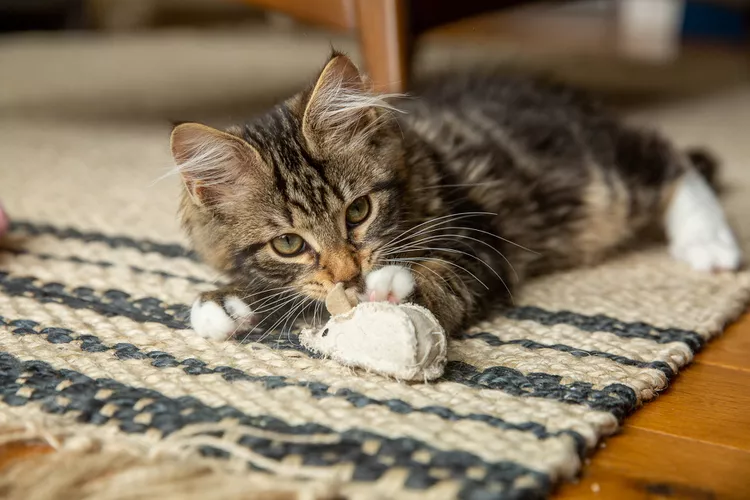
When facing the imminent death of a terminally ill beloved cat, or when a feline companion has suddenly died, the disposal of the remains is a hard topic to contemplate. However, planning ahead for the inevitable is important and helps avoid making hasty emotional decisions that you may regret later.
Many methods of animal remains disposal are governed by individual state or local laws, so part of planning in advance includes investigating laws in your location. For example, some counties prohibit the burial of pets in backyards or the scattering of pet cremains. A local animal shelter or veterinarian will be able to help navigate the legal landscape.
Cremation can be arranged through your veterinarian, pet cremation companies, or possibly through a local animal shelter. There are two methods:
When it comes to burying your pet, you may have the option of burying your cat at home or in a pet cemetery.
While not for everyone, some people may find immense comfort in having a permanent lifelike visual reminder of a cat they dearly loved in their home. The price for this service usually starts at around $1,000 and increases based on several factors. A veterinarian can help refer pet owners to professional taxidermists.
No matter how prepared, the loss of a pet can still come as a shock, and handling the practical aspects afterward can be emotionally exhausting. Considering a few common questions can help prepare owners for the stressful time that surrounds a cat's death.
Will someone come to my home and take away the animal's body?
A mobile veterinary clinic may be able to come to your home. Animal control services will also pick up deceased pets for a fee. Your pet's passing will not be considered an emergency, so at night, weekends, or holidays, they may not arrive until the next business day.
If there is a delay, what do I do with my cat's body?
Like humans, upon death, cats may expel fecal matter or urine. This is not a signal that they passed in pain; when they die, the internal organs and muscles loosen, releasing waste. It's fine to clean up your pet a bit after it has passed. Depending on how long you have to wait, you can wrap the body carefully in towels and place it in an appropriately sized box.
If you have to wait more than two hours, or in hot weather, wrap the remains thoroughly in plastic wrap, place it in a large plastic bag, tie it closed tightly, and place it in an ice chest with ice packed all around. These details are painful to think about, and even more painful to carry out. Remember that your cat's essence is no longer in its body. The careful, respectful handling of your beloved cat's remains will serve as a testament to your love.
When you have handled all the final details, the enormity of your loss may hit you immediately, or you may find yourself feeling numb and unable to cry. Grieving any loss is a long process, and you may never feel fully recovered. Through understanding and recognizing the progressive stages of grief, the day will come when you will be able to look back on your life together with love and smiles instead of tears.

10 Obscure, Little-known Canine Facts in Honor of National Dog Day
With National Dog Day upon us, it's time to celebrate everything about our favorite pets—even the weirder stuff. Here are 10 obscure facts about dogs you probably didn't know.
Exploring the Different Types of Pet-Friendly Beaches
Are you looking for pet-friendly beaches? Learn about the different types of pet-friendly beaches, their locations, and tips for visiting them with your pet.
Toxic Chemicals & Household Items That Can Poison Dogs
There are many things in and around your home that can endanger your dog. Learn which chemicals and household items can poisin your dog.
Bronchitis in Dogs
Is your dog coughing and feeling unwell? It could be due to respiratory inflammation called bronchitis. Learn the causes, treatment, and prevention.
Choking in Dogs
A dog can occasionally swallow something incorrectly and start choking. Find out how you can tell if your dog is choking and what you can do about it.
Why Does My Dog Smell So Bad?
Does your dog smell? Find out what could be causing these unpleasant odors and if it's something that needs more than just a bath to fix.
Is Rosemary Safe for Dogs?
Rosemary is used both for cooking and as a supplement with many reported health benefits in people, so you may be wondering if it is safe to give to your dog. Rosemary is considered non-toxic for dogs but with some caveats.
Can Dogs Eat Blueberries?
Dogs can safely eat blueberries. Blueberries are packed with nutrients and can be a great addition to your dog's diet when fed in moderation. Learn more about the benefits, risks, how to incorporate blueberries into their diet, and other fruits dogs can eat.
Dog Food Basics
Are you feeding your dog the best way possible? Check out these dog feeding tips to keep your dog healthy and happy.
Swedish Vallhund: Dog Breed Characteristics & Care
The Swedish vallhund makes for a high-energy and affectionate companion. Learn about the breed's history, health, exercise needs, and more.
Becoming a Show Dog: Getting Started
Do you have the perfect puppy? Have you considered showing her in a dog show? There's much more to showing than showing up! Here's how to get started.
How to Care for a Hairless Cat
Hairless cats make great pets but they aren't without their own challenges and requirements. Read on to learn how to best care for your furless feline.
British Shorthair: Breed Profile, Characteristics & Care
The British Shorthair is a calm, affectionate cat that looks and feels like a plush teddy bear. Here's what you need to know about this popular breed, including appearance, temperament, health, and care.
Tonkinese: Cat Breed Profile, Characteristics & Care
The Tonkinese cat is a perfect mix of the Siamese and Burmese—smart, sociable, and sweet. Learn about the Tonkinese breed.
How to Stop Your Cat From Chewing Electrical Cords
Cats are known to pounce and attack inanimate objects, like electrical cords. Learn how to prevent your cat from ambushing objects that may harm it.
How to Stop Aggression in Kittens
Kittens may show aggressive behavior for several reasons. Sometimes their play gets too aggressive while other times the kitten is afraid or upset. Learn how to spot and curb aggression in kittens.
46 Egyptian Cat Names
Whether inspired by notable Egyptian deities, locales, or pharaohs, Egyptian cat names can bring out the divinity of your noble feline companion.
How to Tell If a Kitten is a Boy or a Girl
If you're wondering whether your new kitten is a boy or a girl, here are three ways to help determine the sex of your cat.
Signs Your Cat Is Aging and When to See the Vet
Expect some changes when your cat ages. Learn to differentiate between normal and potential medical problems for your elderly cat.
Coronavirus in Cats
Feline coronavirus (FCoV) rarely harms cats but can lead to another life-threatening illness. Learn the causes, treatment, and prevention.